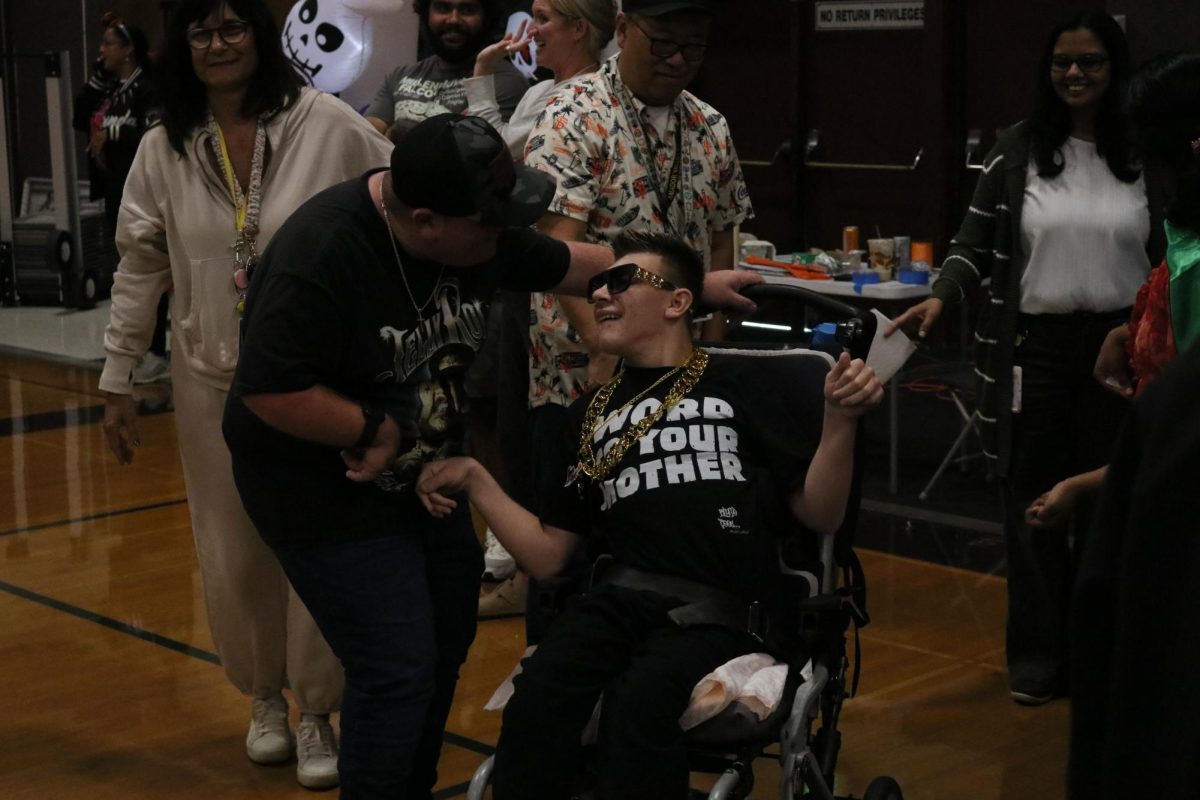Are we the most tolerant or intolerant generation in history?
November 19, 2020
So far, older generations have deemed Generation Z the most tolerant and the most intolerant generation, so which is it?
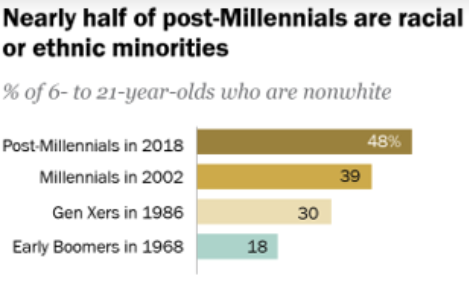
On one hand, studies have proven that Gen Z is the most ethnically diverse generation to come. In the US, there is only a slight majority (52%) of Gen Z that is non-Hispanic white, which is distinctly lower than previous generations.
“The world is thriving on advanced technology to eradicate prejudice with blending cultures,” said Gail Silverman, PUSD substitute teacher and boomer.
The advancement of technology in travel and social media makes other parts of the world quite accessible from a young age.
Gen Z is also completely more tolerable with other’s sexual orientation and gender fluidity.
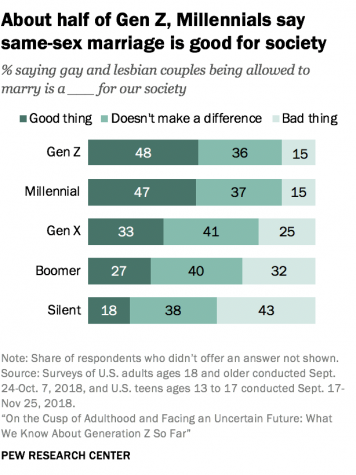
A Pew Research Study found that “half of Gen Zers (48%) and Millennials (47%) say gay and lesbian couples being allowed to marry is a good thing for our society. By comparison, only one-third of Gen Xers and about one-quarter of Boomers (27%) say this is a good thing.”
The newest generation is probably the most accepting of whoever one wants to be, and that comes with an influx of celebrities who speak out for being confident in who one truly is.
They bring light to a once greatly frowned upon and silenced subject.
On the other hand, Gen Z has become less tolerant of opinions that aren’t their own, especially when it comes to “cancel culture.”
Cancel-culture, for those who don’t know, is a toxic trend that, quite publicly, mass criticizes public figures and the media for doing or saying something offensive or deemed wrong.
“Too many Gen Z’s feel like they are the judge and jury of social injustice even when it has nothing to do with their own individualism. They shame others into submission which is just as bad as the choices of those they are judging,” said Christopher Griese, Gen X Geometry and Algebra I teacher.
It has become an inherent problem with mass withdrawals of support — and in return, mass bullying — from individuals because of a mere claim or mistake made by a big name that anyone who isn’t in the spotlight would do without being blasted for it.
“[There are] ways in which Gen Z expresses more tolerance, but I also see ways that they shame and are passive aggressive in their attempts to conform others to their personal opinions,” said Griese.
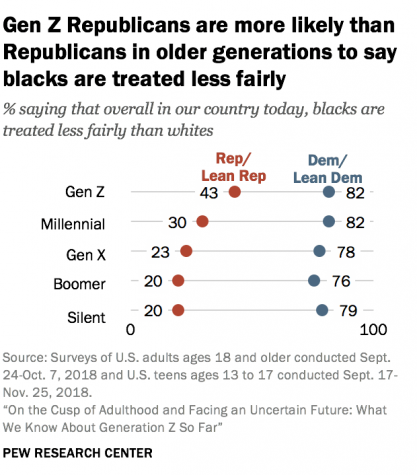
There have been many cases, especially with the past election, in which many individuals would post polls on their social media asking which presidential candidate their peers supported, and they would unfollow those who supported a candidate they didn’t.
“Gen Z…[isn’t always] open to the thoughts or ideas of people who have different political opinions…sometimes when we are so passionate about something we lose the ability to listen and show compassion and understanding,” said Marisa Mejasich, Millennial Geometry and Algebra I teacher.
Now, the past election was definitely a more debatable scenario, but that same mindset can be applied to Gen Z when it comes to many other controversial topics.
“The cancel culture of our generation has been viewed as “ridiculous” or “immature” however despite these things, it does not go away,” said Lauren Emmett ‘23, Gen Z.
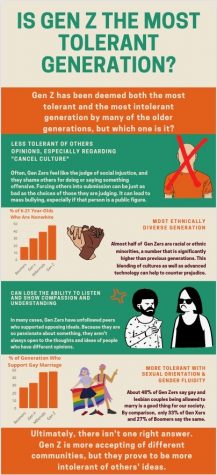
Gen Z is a bit more stubborn in these ways, and the fact that there is less of a divide means it is harder to change the whole generation’s mindset, which can be detrimental in the long run.
“When you allow [older generations] to share [their] knowledge, despite what your opinion might be on the topic, you learn so much. Learning and seeing the viewpoints of others is what allows us to learn to show compassion,” said Mejasich.
So what does this mean? There isn’t one right answer.
Yes, Gen Z is more diverse and accepting of all when it comes to the unchangeable aspects, however, Gen Z’s constant inability to “agree to disagree” shows that they are more intolerant of others’ ideas and opinions.





